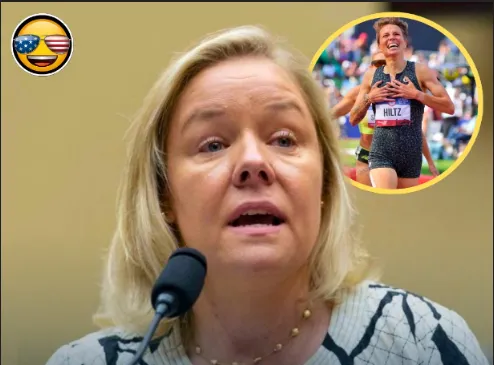
After more than a week of political controversy, affiliate blackouts, and record-setting ratings drama, Jimmy Kimmel Live! is officially back on the air everywhere. On Friday, Nexstar Media Group announced it would end its boycott of the late-night show, following closely on the heels of Sinclair Broadcast Group’s own reversal. Together, the two decisions restore Kimmel’s show to a truly national footprint on ABC affiliates — and mark a symbolic win for both Disney and Kimmel himself.
Nexstar’s Statement
In announcing its decision, Nexstar struck a conciliatory tone, noting that it had “discussions with executives at The Walt Disney Company” and praising Disney’s “constructive approach to addressing our concerns.”
The company emphasized its self-styled mission as a community broadcaster:
“Our decisions are rooted in a commitment — and obligation — to be stewards of the public airwaves and to protect and reflect the specific sensibilities of our communities.”
Nexstar also sought to distinguish itself from “cable television, monolithic streaming services, and national networks,” positioning its affiliates as local-first operators tasked with reflecting community standards.
Denying Political Pressure
Perhaps most notably, Nexstar attempted to push back on the narrative that it had acted under political orders.
“Our actions were independent of any external influence from government agencies or individuals,” the statement read.
That line directly addressed speculation that FCC Chairman Brendan Carr’s comments had spurred the blackout. In a podcast interview last week, Carr warned affiliates about potential “remedies” if they kept airing Kimmel, language that critics argued sounded more like intimidation than regulation.
By stressing its independence, Nexstar tried to recast its preemptions as a matter of community sensibility rather than political maneuvering.
Disney Reportedly Didn’t Blink
Despite Nexstar’s framing, multiple industry reports suggest Disney and ABC did not make concessions to affiliates to bring Kimmel back. Under standard carriage agreements, affiliates are required to broadcast network programming in designated time slots. Exceptions exist for breaking news and live sports, but political boycotts fall into murky territory that could expose affiliates to breach-of-contract claims.
And Disney had leverage. Beyond marquee programming like The Bachelor and Grey’s Anatomy, ABC controls rights to NFL football. For affiliates, losing access to Monday Night Football or college football broadcasts would be financially devastating.
Ultimately, Nexstar and Sinclair appear to have recognized that continuing the blackout risked violating agreements and jeopardizing relationships that are too lucrative to lose.
Why the Timing Matters
Nexstar’s announcement came just hours after Sinclair issued its own reversal. The twin decisions brought an end to an unusual chapter in which roughly 20 percent of U.S. households couldn’t watch Kimmel’s comeback episodes, even as his Sept. 23 return drew 6.26 million viewers — the show’s largest audience in more than a decade — and went viral online.
The optics weren’t great for affiliates: viewers and advertisers saw Kimmel’s return as a cultural event, yet stations in 60+ markets weren’t carrying it. That imbalance likely accelerated the decision to end the boycott.
Network vs. Affiliates: A History of Tension
While Kimmel’s case is unique, it fits into a long tradition of affiliate revolts and uneasy compromises in U.S. television history.
Ellen’s “Puppy Episode” (1997): Several ABC affiliates refused to air the landmark coming-out episode of Ellen, citing “community standards.” The preemptions drew national attention and underscored the tension between cultural progress and local sensibilities.
Schindler’s List (1997): Some affiliates preempted NBC’s broadcast of Spielberg’s Holocaust epic, arguing its nudity was inappropriate, even though it was historically accurate.
Super Bowl Fallout (2004): After Janet Jackson’s halftime “wardrobe malfunction,” CBS affiliates grew cautious, preempting or delaying network shows like Saving Private Ryan for fear of FCC fines.
Jay Leno’s Primetime Experiment (2009–2010): NBC affiliates revolted when The Jay Leno Show tanked in primetime, dragging down local news ratings. Affiliate pressure forced NBC to cancel the experiment.
Sinclair Must-Run Segments (2018): In a reverse scenario, Sinclair drew fire for requiring affiliates to air conservative editorials. Anchors visibly uncomfortable with the mandate turned the controversy into a viral moment.
What makes Kimmel’s case unusual is that the boycott wasn’t about sex, violence, or ratings — it was about political speech and satire, the lifeblood of late-night television.
A Win for Kimmel
For Kimmel, Nexstar and Sinclair’s reversals are more than logistical. They reinforce the narrative he has been shaping since his return: that he would not be broken by political pressure or corporate timidity.
His comeback monologue didn’t include an apology; instead, he doubled down on free-speech principles.
His show drew record-breaking digital traffic, with 15+ million views on YouTube in less than 24 hours.
Unlikely allies like Ted Cruz, Ben Shapiro, and Joe Rogan defended his right to speak, broadening his support beyond partisan lines.
Kimmel managed to turn what could have been a career-ending suspension into one of the defining triumphs of his career.
What It Means for Affiliates
The incident also underscores the delicate position of affiliates in 2025.
Diminished leverage: In the age of streaming, networks no longer rely on affiliates as their sole path to audiences. Disney could theoretically bypass affiliates altogether through Hulu or Disney+.
Economic dependence: Local stations still depend on big-ticket network programming like NFL games to drive ad revenue. Picking fights with networks risks cutting off their lifeline.
Symbolic losses: The boycott framed Nexstar and Sinclair as political players rather than neutral broadcasters, complicating their attempts to brand themselves as community-first.
Looking Ahead
With the blackout resolved, Kimmel’s show is once again a nationwide platform. But the saga raises lingering questions:
Will affiliates be emboldened to act again the next time political controversy arises?
Will networks start to rethink the affiliate model altogether, especially as streaming offers more direct distribution?
Will comedians face new pressure to self-censor, knowing that even affiliate groups can become political actors?
For now, though, the answer is simple: Jimmy Kimmel Live! is back everywhere, and Kimmel is stronger than ever.
Conclusion
What began as an unprecedented standoff between a late-night comedian, powerful station groups, and political leaders has ended with a reminder of where the real leverage lies. Disney held firm, affiliates recognized the limits of their autonomy, and Jimmy Kimmel walked away not just unscathed but elevated.
Late-night hosts have always thrived on testing boundaries. This time, the boundary wasn’t a joke or a sketch — it was the very structure of network television. And in this round, Kimmel proved that satire, ratings, and contractual obligations still carry more weight than political intimidation.



